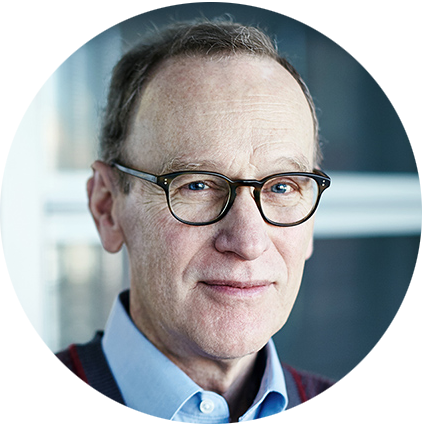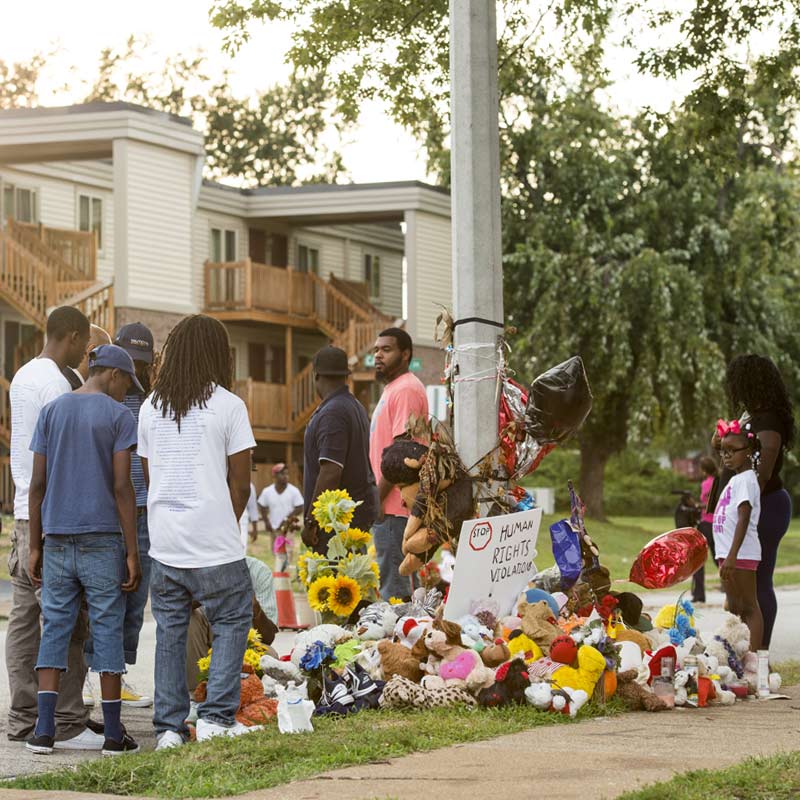
August 9th should cause us all to take time for reflection. Michael Brown Jr.’s killing five years ago was a tragedy for his family, and it sparked a tempest of activity that came to be known simply as “Ferguson.” Ferguson reached across greater St. Louis, the country, and around the world, tattooing an identity on the St. Louis region that, in reality, was centuries in the making and deeply embedded long before August 2014. Nevertheless, for many of us in the region, Ferguson was a wake-up call, and it changed us, all of us – including Missouri Foundation for Health.
As we reflect on changes in how we work and what we prioritize, it is fitting to reflect briefly on the broader St. Louis community’s response to Ferguson. Here, for better or worse, I bring an outsider’s view, having come to St. Louis for the first time in late 2011.
In thinking about the past five years two things stand out to me. The first is the extensive balkanization within and across sectors – from media to business to nonprofits to governments to economic development to philanthropy – that severely handicaps positive collective action. Ferguson put this patchwork of underlying divisiveness into stark relief with the major fault line around race. We’ve made some progress, but not nearly enough, and these divisions will continue to impede a positive, dynamic future for our region until we find ways to overcome them.
Second, while the region has responded with many good projects, the heart of St. Louis’ future depends on investing in the communities where people face the most severe systemic challenges to living healthy, productive lives. And here we have come up woefully short. This priority must be side by side with other significant investments in St. Louis’ future. As Kathy Osborn noted in her recent remarks when receiving the 2018 Citizen of the Year award, we won’t make significant progress as a region without investing in the people and neighborhoods that we have not invested in in the past.
The Foundation works across most of Missouri to improve the health and well-being of people and communities that are living in the most challenging circumstances and are striving to overcome systemic barriers to healthy lives. How do we do this work? We listen to communities. We look at the evidence. We learn. We find effective partners. We choose the best change tools available. And we persevere. Responding to Ferguson challenged us to do all of this better.
The Ferguson Commission was formed in the aftermath of the turmoil, and it became the keystone to our work in the area. We partnered with six area foundations to financially support the commission. Our staff provided health and health care-related testimony during the community forum meetings. Additionally, MFH-supported research “For the Sake of All,” by Jason Purnell and colleagues, was a prime source of racial disparity evidence for the commission.
The commission’s excellent community-wide process for generating recommendations was a gift to MFH. It provided an organized, cross-sector set of specific priorities that had widespread legitimacy based on an inclusive process, the commission’s diverse composition, and its strong leadership. Initially I was disappointed that health was not an organizing idea for the commission, but I realized that while health was our priority, what was important were the communities’ priorities. We needed to listen. And from that listening, we decided that our greatest impact would come from us waiting for and embracing the commission’s calls to action and focusing on work at the intersection of health and racial equity.
We reviewed the report and set aside a portion of our resources for work on its health-related issues, which included food insecurity, criminal justice system, and violence prevention, to name a few. In brief, we entered health-related areas where we had not and might not have otherwise gone.
Our efforts to reduce firearm violence – the Better Family Life de-escalation centers, the St. Louis area Hospital-based violence intervention program, Story Stitchers – emerged from our Ferguson work. We internally dubbed these and other efforts that aligned with this work, “Ferguson and Beyond” because we saw ourselves engaging in change related to these issues far beyond 2014 and far beyond the borders of Ferguson itself. Real change needed to happen. Implementing more holistic strategies for long-term transformation, in addition to our short-term work, was a way for the Foundation to engage communities toward sustained progress. Earlier this summer we committed to working on gun violence prevention as a public health issue for another three years.
Our commitment to racial equity, the overall framework for the commission’s report, is reflected in our work to strengthen black-led advocacy in our region. We continue to support the work of Forward Through Ferguson (which originated from the Ferguson Commission). The Foundation recently invested in FTF’s advocacy work for the next five years, as well as its ongoing reporting on the region’s progress toward the commission’s recommendations. Further, we see great value in partnering with grassroots organizations like WePower and programs such as Neighborhood Leadership Fellows to strengthen leadership and build healthier communities for generations to come.
MFH, like the Urban League of Metropolitan St. Louis, sees the value of a more cooperative approach to rebuilding and forging ahead. Our strategic investment in the new Boys and Girls Club Teen Center of Excellence that is scheduled to open in October, supports the need for our youth to have adequate assistance toward living healthier lives, with a focus on trauma-informed care services, safe spaces for teens to participate in regular physical activity, and consistent access to nutritious meals. The center, which is the first of its kind in the U.S., is based on a landmark report issued by the Boys and Girls Club of America and is an example of a national model being implemented right here at home. And, we must acknowledge our wonderful partners making progress on other issues like reducing incarceration and recidivism (Criminal Justice Ministry), adopting trauma-informed approaches in schools (Alive & Well), and strengthening housing and neighborhoods (Invest STL, Beyond Housing).
Nevertheless, progress across our work is uneven. Like many in the region, MFH has racial equity work to do internally, which we see as an essential component of collaborating with community partners. Our learning continues. And we recognize that establishing good relationships with nonprofit partners depends on building trust and frank two-way dialog consistently over time. We have work to do in this area as well.
Over the past few months I’ve had numerous conversations about how we are doing as a region since Michael Brown’s death. Beyond the specific assessments, I’ve been struck by the willingness to engage on tough issues, discuss racial equity, and have open, candid exchanges. This is encouraging, and I’d recommend that all of us take the time to reflect on our own thoughts and listen to others in conversations with our families, neighbors, friends, and colleagues. Before we can become the thriving region we want to be, we need to believe that we genuinely are working to make that happen for all of us. Ferguson, its future and its legacy belongs to all of us. The world is watching.



